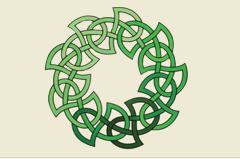Article Title
Abstract
For almost fifty years, since his death in 1963, C.S. Lewis, Lazarus-like, has continued through his literary executors to come forth from his literary grave, providing an almost unending, vast landscape of multimedia productions from multi-volume collections of personal letters and anthologies of essays to four major Hollywood film productions; from miscellaneous small action figures and early reader literacy booklets connected to the Narnian movies to highly technical on-stage renditions of the demonic Screwtape and the verbally combative, but highly successful off-Broadway drama, Freud's Last Session.
But beyond all of these highly visible projects, this paper will provide some reflections on what is yet another more recent and more substantial Lazarus-like Lewis project: C.S. Lewis's Lost Aeneid. For here in this book is a translation both immensely personal to Lewis and also potentially a significant scholarly contribution to the instruction and understanding of one of the world's great epics. This paper shall make a brief analysis of the many published responses to Lewis's partial translation, note several places where Virgil is mentioned in the Lewis corpus and also provide insights gathered from a study of Lewis's own annotations in his personal library copy of the Works of Virgil.
Recommended Citation
James, Richard
(2012)
"Further Responses to Lewis's 'Lost Aeneid',"
Inklings Forever: Published Colloquium Proceedings 1997-2016: Vol. 8, Article 10.
Available at:
https://pillars.taylor.edu/inklings_forever/vol8/iss1/10
Included in
English Language and Literature Commons, History Commons, Philosophy Commons, Religion Commons

